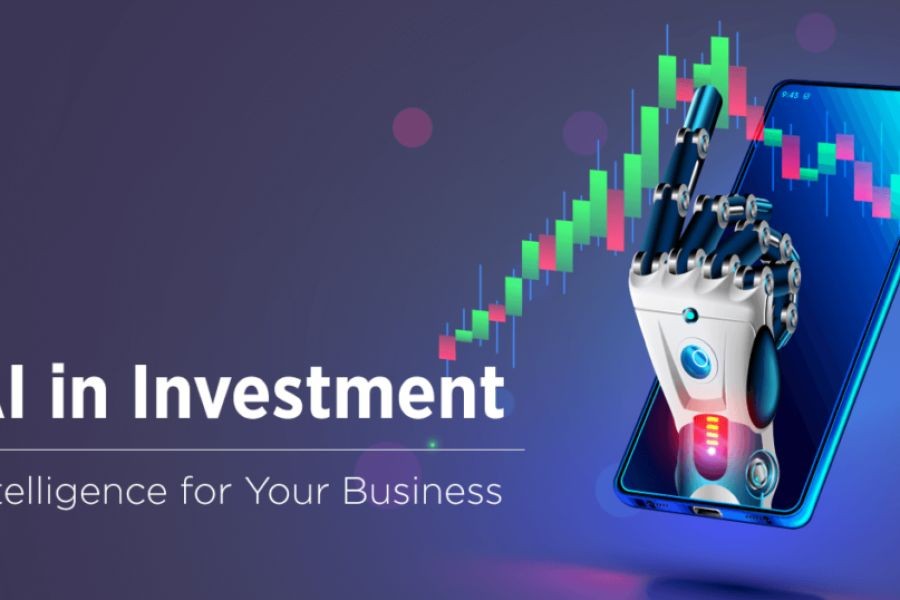In the rapidly evolving landscape of investment strategies, the debate between AI-powered investing and human financial advisors is gaining traction, especially in Australia. With advancements in artificial intelligence reshaping various industries, including finance, investors are increasingly curious about the profitability and reliability of AI-driven decisions compared to traditional human advice. This article delves into this dynamic interplay, providing insights relevant to Australia's unique economic landscape.
AI-Powered Investing: A Game Changer?
AI-powered investing leverages algorithms and machine learning models to analyze market data, predict trends, and automate trading decisions. According to a report by Deloitte, AI applications in financial markets have the potential to increase investment returns by up to 20% due to enhanced data processing capabilities and pattern recognition.
In Australia, the adoption of AI in financial services is accelerating. The Reserve Bank of Australia (RBA) notes that the integration of advanced data analytics and AI technologies is contributing to improved decision-making processes, particularly in asset management and trading strategies. AI's ability to process vast amounts of data at lightning speed offers a competitive advantage in identifying investment opportunities and managing risks.
Pros of AI-Powered Investing in Australia
- Data-Driven Decisions: AI systems can analyze extensive datasets to detect patterns and predict market movements, offering data-backed insights that might be missed by human advisors.
- Efficiency and Speed: AI algorithms can execute trades instantaneously, capitalizing on market fluctuations in real-time.
- Cost-Effective: AI systems can reduce the operational costs associated with human advisors, potentially lowering fees for investors.
- 24/7 Operation: Unlike human advisors, AI systems can monitor and respond to market changes around the clock.
Cons of AI-Powered Investing
- Lack of Human Judgment: AI lacks the emotional intelligence and nuanced understanding of market sentiment that human advisors possess.
- Data Privacy Concerns: The reliance on massive datasets raises questions about data security and privacy, a concern noted by the Australian Competition & Consumer Commission (ACCC).
- Overreliance on Historical Data: AI models may struggle to adapt to unprecedented market events that deviate from historical patterns.
Human Financial Advisors: The Traditional Approach
Human financial advisors bring a personalized touch to investment strategies, offering customized advice based on individual client needs. In Australia, financial advisors are regulated by the Australian Securities and Investments Commission (ASIC), ensuring a high standard of professional conduct and fiduciary responsibility.
Advantages of Human Financial Advisors
- Personalized Advice: Advisors provide tailored strategies that consider the unique financial goals and risk tolerance of each client.
- Emotional Support: Human advisors can offer reassurance and guidance during volatile market conditions, helping clients maintain perspective.
- Holistic Financial Planning: Beyond investment advice, advisors assist with comprehensive financial planning, including retirement and tax strategies.
Challenges Facing Human Advisors
- Higher Fees: Personalized service often comes with higher costs compared to AI-driven platforms.
- Limited Availability: Human advisors are typically accessible during business hours, unlike AI systems operating continuously.
- Potential for Bias: Human judgment may be influenced by personal biases, affecting investment decisions.
Case Study: AI vs. Human Advisors in the Australian Market
To illustrate the practical implications of AI and human financial advisors, let's examine the case of an Australian investment firm, Innovest, which integrated AI-powered tools alongside its team of experienced advisors.
Problem
Innovest faced challenges in optimizing portfolio returns for its client base, particularly in the volatile renewable energy sector.
Action
Innovest implemented an AI-driven platform to complement its advisory services. The AI system analyzed historical data and real-time market trends to identify profitable investment opportunities in the renewable energy sector.
Result
- Enhanced Returns: Portfolio returns increased by 18% over six months, outperforming the industry average.
- Improved Client Satisfaction: Clients reported higher satisfaction due to the combination of AI insights and personalized advice.
- Operational Efficiency: The integration reduced the time advisors spent on data analysis, allowing more focus on strategic planning.
Takeaway
The case of Innovest highlights the potential for a synergistic approach, where AI enhances the capabilities of human advisors, leading to improved investment outcomes.
Myths and Misconceptions
- Myth: "AI can predict the market with complete accuracy." Reality: While AI improves prediction accuracy, it cannot eliminate uncertainty and unforeseen market events.
- Myth: "Human advisors are becoming obsolete." Reality: Human advisors continue to play a crucial role in providing personalized and holistic financial guidance.
Future Trends and Predictions
As AI technologies continue to evolve, their role in investment strategies is expected to grow. By 2028, the Reserve Bank of Australia projects that AI will be integral to over 50% of investment decisions, particularly in areas like asset allocation and risk management. However, the blend of AI and human expertise is likely to remain the most effective approach, combining the strengths of data-driven insights with human intuition and personalized service.
Conclusion
In the debate between AI-powered investing and human financial advisors, both approaches offer distinct advantages and challenges. For Australian investors, the optimal strategy may lie in leveraging the strengths of both, using AI for data analysis and efficiency while relying on human advisors for personalized guidance and emotional support.
As AI technologies advance and regulatory frameworks adapt, the landscape of investment strategies will continue to evolve. Investors are encouraged to stay informed about these developments and consider how they can integrate AI insights into their financial planning.
Final Takeaways
- AI-powered investing offers data-driven insights and operational efficiency, but lacks human judgment.
- Human advisors provide personalized, holistic advice, crucial during volatile market conditions.
- A combined approach, utilizing both AI and human expertise, may yield the best investment outcomes.
- Future trends indicate an increasing role for AI in investment strategies, with a continued need for human intuition.
What are your thoughts on AI vs. human financial advisors? Share your insights in the comments below!
People Also Ask (FAQ)
How does AI-powered investing impact businesses in Australia?
AI-powered investing can enhance decision-making processes, offering data-driven insights that improve investment returns. Businesses leveraging AI report increased efficiency and profitability.
What are the biggest misconceptions about AI in investing?
A common myth is that AI can predict markets with complete accuracy. However, AI enhances prediction accuracy but cannot eliminate uncertainty.
Related Search Queries
- AI investing in Australia
- Human vs. AI financial advisors
- Investment strategies in the Australian market
- AI impact on financial services
- Future of investing in Australia































